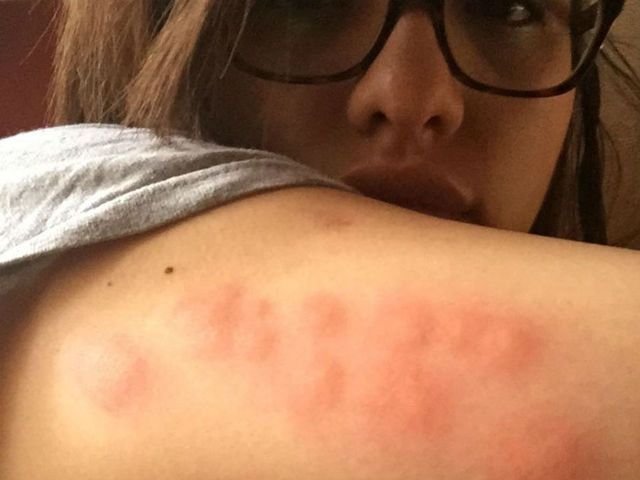You may not have bedbugs in your home now, but they can suddenly appear at any time. These obnoxious little parasites have plagued humanity for thousands of years. They are resilient, highly mobile, and stealthy. Traveling exposes you to a greater risk of infestation. The key to protecting yourself from is preventing these vermin from coming home with you in the first place. Find out how to avoid them, and when you should seek theassistance of pest control experts.
What Are Bedbugs?
Bedbugs are small parasitic insects that hide in the cracks of walls and near the corners of furniture. They remain inactive throughout most of the day, and feed at night. If you are noticing that you are waking up with small bites and sores on your body, you may bea victim of bedbugs. They can live for up to a year without feeding, and can multiply quickly in the right conditions.Visual clues of their existence includes rust colored stains and hard exoskeleton shells along the edges of furniture. They travel to new locations by hitching rides with their unsuspecting hosts, and they are notoriously difficult to get rid of.
Inspectthe Room You Stay In
With the number of people traveling and staying in hotel rooms, it is likely that you will encounter bedbugs at some point. Cheap hotels already have a reputation for filth, but bedbugs are not very discriminating. They can hide just about anywhere and may even be found in a luxury suite. Carefully examine any new room you stay in when you travel.
The first thing you may notice in a hotel room is the odor. Musty and humid environments are favorable to bedbugs. Look in the corners and behind the bed board for visual signs. Pull out dresser drawers, lift up the lamps on the end tables, and pull back the sheets of the bed. Also inspect the cushions of chairs or sofas, and avoid setting your luggage on any of the furniture until you are sure it is safe.
When it is Already Too Late
If you have found bedbugs after you have already stayed in a room, it is too late to avoid being contaminated. You need to alert the hotel management or property owners right away. Moving to another room will just increase the likelihood that the infestation will spread.
Everything in the room needs to be scrubbed and thoroughly cleansed. Furniture should be pulled away from walls and vacuumed. Cushion covers need to be laundered. Sometimes mattresses must be thrown out entirely. Oftentimes professional exterminators are required to treat the infested area.
Cleaning Your Luggage
It’s important to get rid of any possible infestation before you arrive home. Fortunately bedbugs are highly susceptible to extreme temperatures. Wash all of your clothing on a hot cycle. You should even launder your clean clothes. Vacuum up your luggage, and throw out the vacuum bag. A hand steamer can be used to kill any eggs that have been laid in your luggage. Bedbugs are also vulnerable to cold. Placing items in a freezer bag overnight can kill off anything you don’t want to get wet or hot. If there are items you are unsure about, throw them away.
If you have recently returned home from a trip and noticed small bite marks on your body, you may have accidently brought a bedbug infestation with you. Consult with exterminators in San Jose right away to minimize your risks.





